Early Life
- Mother died at childbirth.
- Had to live with her grandmother.
- Inspiration for the story.
Early on in her life, Katherine Anne Porter had to live with her grandmother since her mother died at childbirth. However, by the time she turned 11, even her grandmother died. Various literary historians claim that Porter drew heavily from her own life experiences and, as such, the death of her grandmother can be considered as the inspiration behind Granny Weatherall (Hoefel 9).
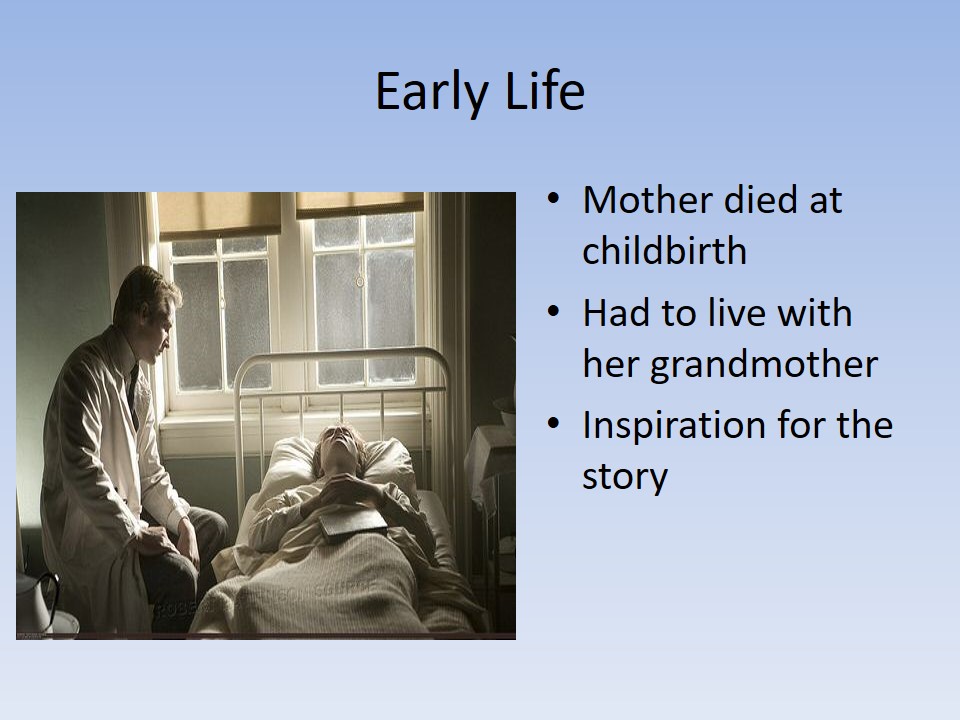
Connection to Cornelia
- The character of Cornelia can be considered as the author placing herself into the story.
- Porter loved her grandmother and most likely took care of her on her deathbed.
When looking at the character of Cornelia in the story, various literary critiques point out that she seemingly represents a version of the author in the story (Carter 909). Simply it, it is known that Porter loved her grandmother and thought of her as a “mother figure” and, as such, the attitude and actions of Cornelia can be considered as the actions the author herself took during her grandmother’s death (Carter 909).
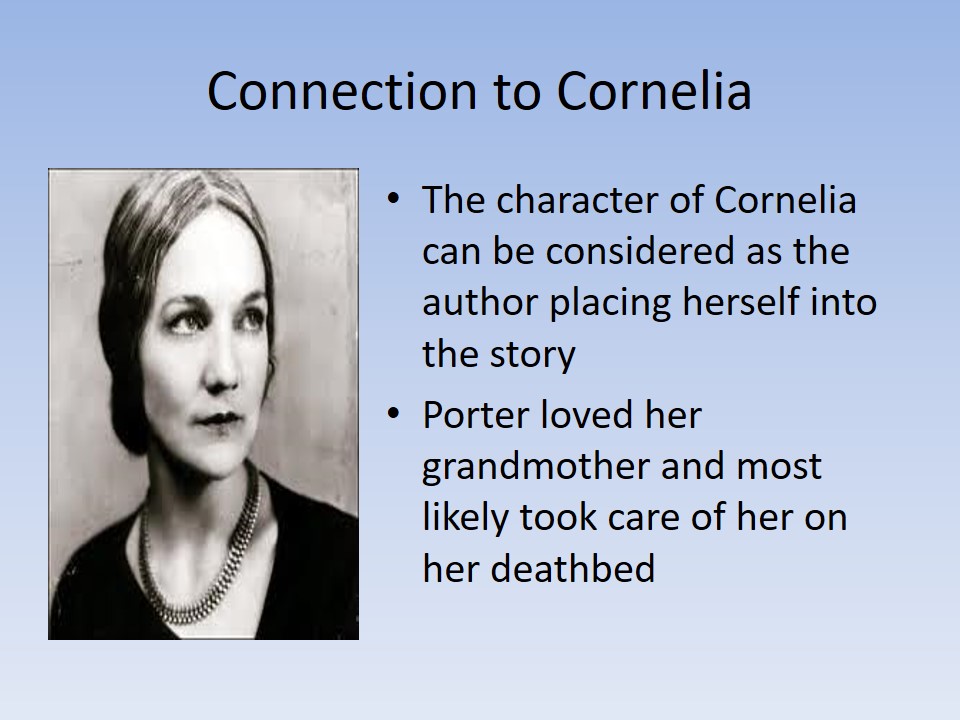
Bad Relationships
- Porter had a bad marriage early on in her life.
- Her subsequent relationships did not fair as good either.
Early on in her life, Porter had a bad marriage to John Henry Koontz who was an alcoholic that frequently physically abused her (Laman 279). It is due to this that she subsequently left him and focused on having her own life. This aspect of her life is reflected in the story wherein it is shown that the first man that Granny Weatherall was to marry actually left her at the altar.
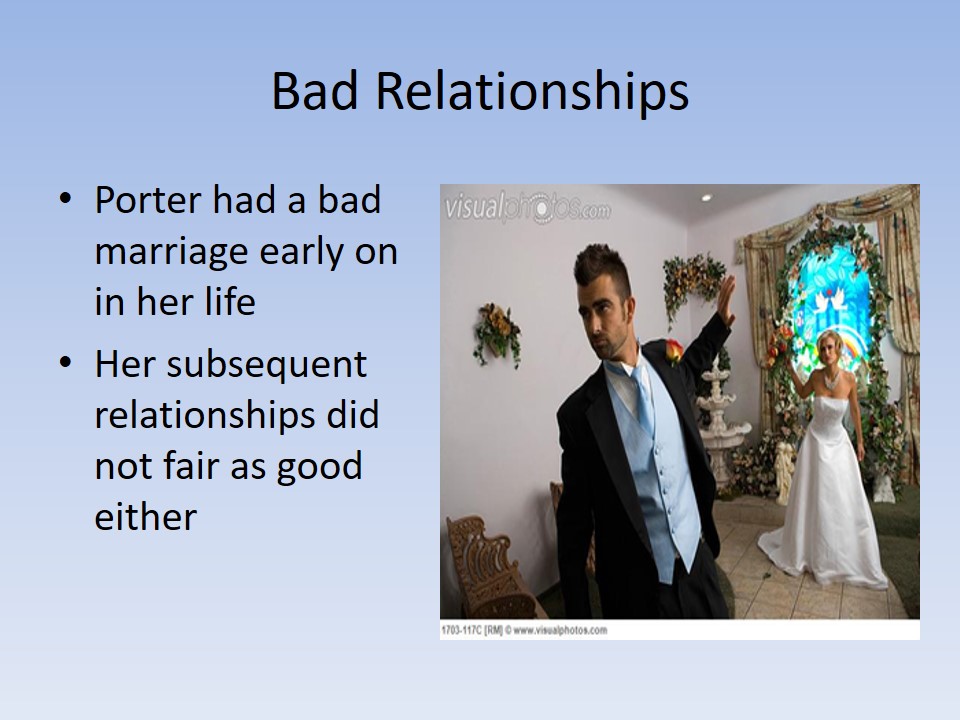
Lying in Bed and Sickness
- Over the course of her life, Porter experienced tuberculosis and influenza.
- This resulted in a considerable degree of experience in writing what a person lying in bed all day would feel like.
One of the most interesting aspects of the story is how Granny Weatherall seemingly shifts from one train of thought to another in a haphazard fashion. While this is meant to represent the decline in her mental capability, it also reflects the experiences of the author who contracted tuberculosis and influenza over the course of her life and, as such, knew first hand of how lying in bed and being ill could have an adverse effect on how a person thinks (Estes 437).
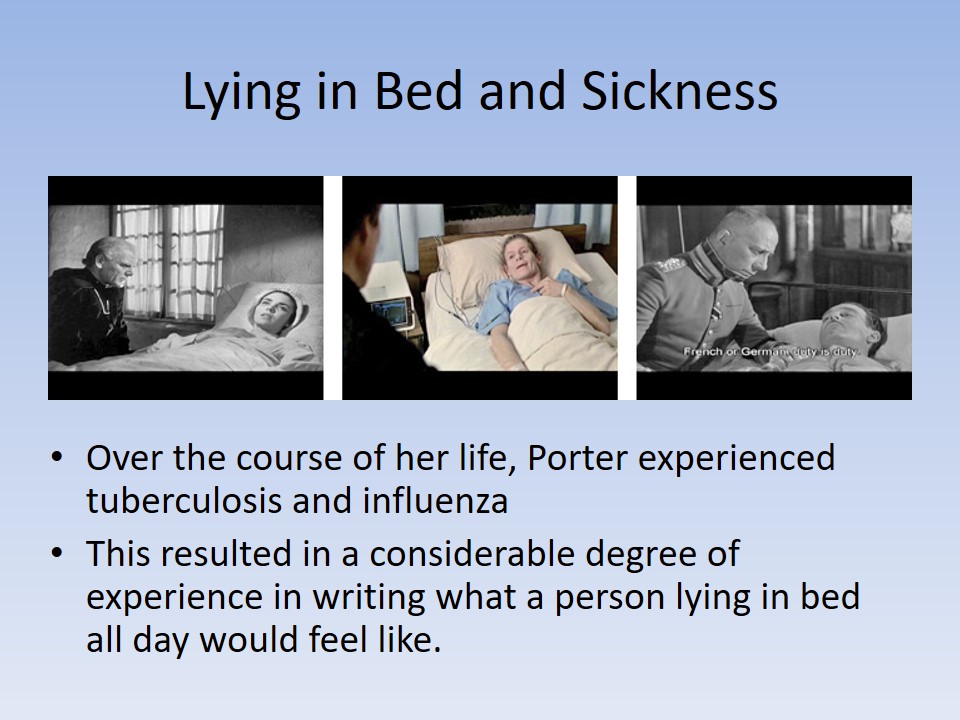
Looking back at life
The main prevailing theme in the story is the concept of looking back at ones life and evaluating what has happened to it.
Granny Weatherall basically looks back on her choices continuously and seems satisfied with everything that she did. However, there is a tinge of regret clouding her choices since she “settled” for John when she really wanted to marry George. This aspect of the story mirrors the various regrets that the author experienced in her own life such as the man she first married and all her various choices that led to bad ends.
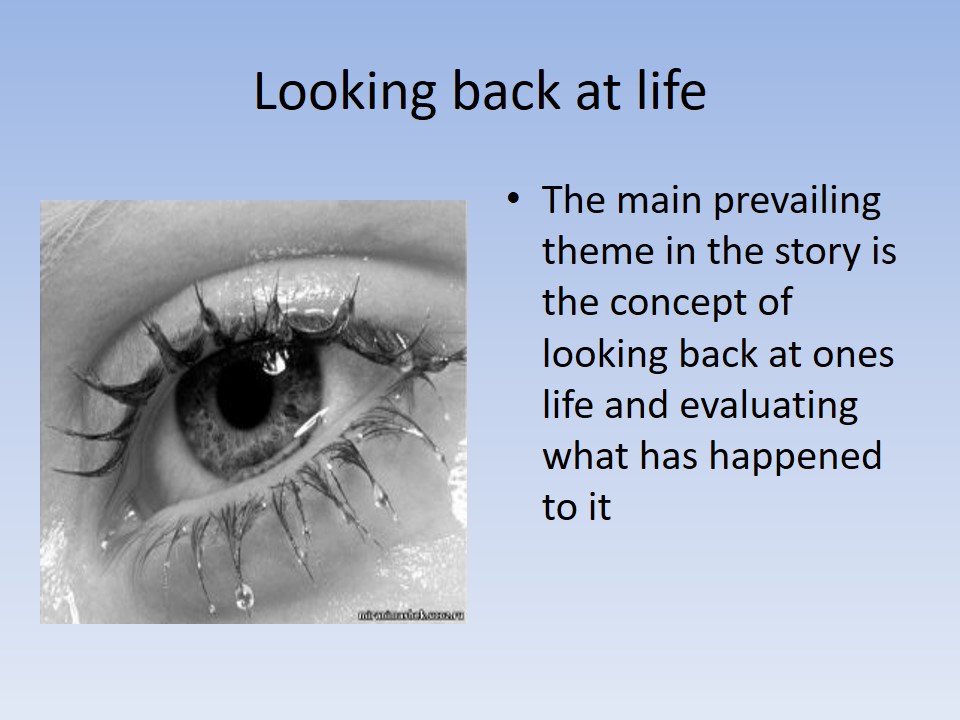
Denial
One of the common themes seen in the story is the concept of denial and how it impacts how a person views life.
One of the most interesting aspects of the story is how the author incorporates the concept of denial. We can seen that Granny Weatherall is trying her best to deny the fact that she still cares for George, the man that left her at the altar. However, in the end, she is still deeply affected by what he did. The same can be said about Porter wherein her string of unsuccessful relationships could be due to her denial that her first relationship impacted her so badly that she could not have a long term relationship afterwards.
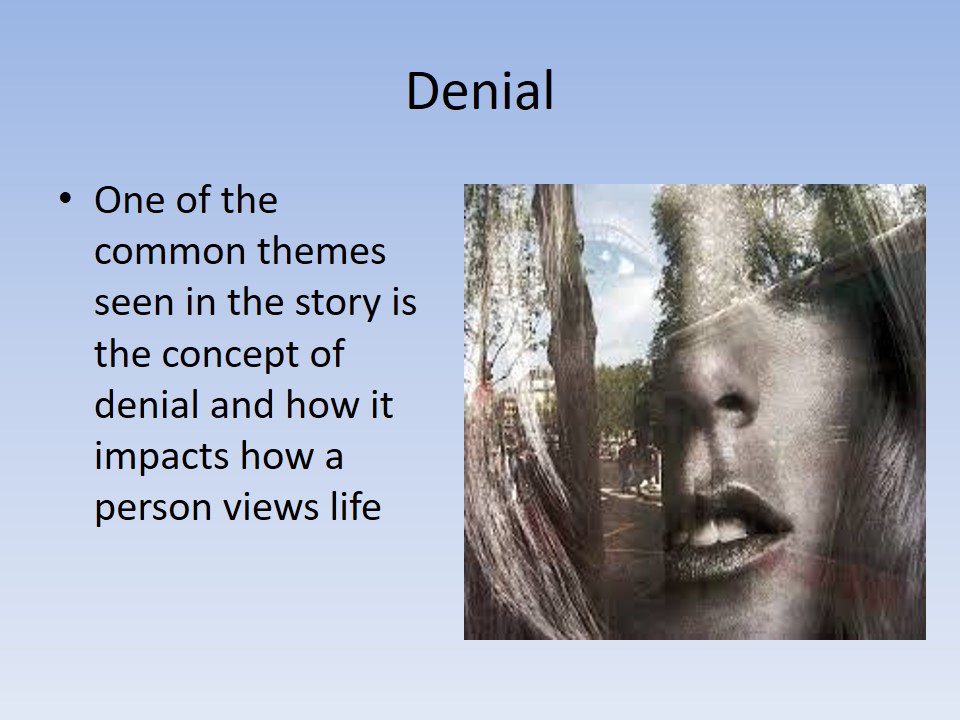
What you think of when you die
In the end, the story really brings up the thought of what you think of when you die.
Whether it is regrets, happy memories or memories of hardship, the story really makes it evident that at the end of our life we think of all these things and, as such, a person should at least make sure they lived a life where they felt fulfilled instead of one fully of drudgery and the same daily routines.

Let it Go
The song “Let it Go” would be an appropriate theme for the story. This is due to the belief of this report that a person should let go of the past and move on with their life.

Works Cited
Carter, Margaret. “Porter, Katherine Anne.” Continuum Encyclopedia Of American Literature (2003): 907-908. Print.
Estes, David C. “Granny Weatherall’s Dying Moment: Katherine Anne Porter’s Allusion To Emily Dickinson.” Studies In Short Fiction 22.4 (1985): Print.
Hoefel, Roseanne. “The Jilting Of Hetero Sexist Criticism: Porter’s Ellen Weatherall & Hapsy.” Studies In Short Fiction 28.1 (1991): 9. Print.
Laman, Benjamin. “Porter’s The Jilting Of Granny Weatherall.” Explicator 48.4 (1990): 279. Print.